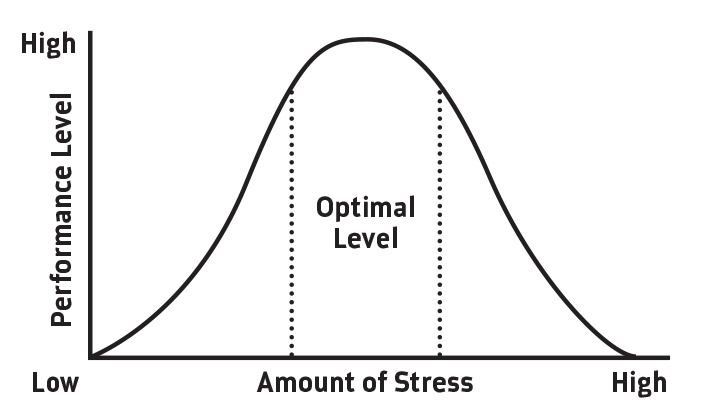Stress
What is stress?
We all have an understanding of what is meant by stress. In addition, we are all likely to have experienced some degree of stress at some point in our lives.
What is sometimes overlooked however, is the positive effect of stress. Psychological experiments have demonstrated increased motivation and performance in people experiencing moderate levels of stress compared to those experiencing no stress at all. As stress levels increase past a critical point however, performance begins to decrease. This is best explained using the diagram below.
The Yerkes-Dodson Curve

The term stress, as used in every day conversations, would appear to refer specifically to higher stress levels and the associated negative effects this can have upon one’s emotional well-being and performance.
Causes/influences
Many researchers have attempted to define this ‘problem stress’, although no agreed definition exists. A common feature in many definitions is the idea of a person and their interaction (or ability to cope) with their environment. Problem stress might therefore be regarded as a situation where somebody’s life demands are greater than their ability to cope with those demands, i.e.
STRESS = Life Demands > Ability to Cope
This can best be explained using the diagram below, adapted from Trevor Powell (Powell, T (2006) The Mental Health Handbook- Revised Edition. Speechmark ISBN 0-86388-330-3)
The balance between life demands and coping strategies

